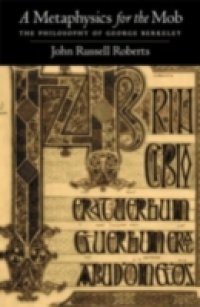George Berkeley notoriously claimed that his immaterialist metaphysics was not only consistent with common sense but that it was also integral to its defense. Roberts argues that understanding the basic connection between Berkeleys philosophy and common sense requires that we develop a better understanding of the four principle components of Berkeleys positive metaphysics: The nature of being, the divine language thesis, the active/passive distinction, and the nature of spirits. Roberts begins by focusing on Berkeleys view of the nature of being. He elucidates Berkeleys view on Locke and the Cartesians and by examining Berkeleys views about related concepts such as unity and simplicity. From there he moves on to Berkeleys philosophy of language arguing that scrutiny of the famous Introduction to the Principles of Human Knowledge reveals that Berkeley identified the ideational theory of meaning and understanding as the root cause of some of the worst of mans intellectual errors, not abstract ideas. Abstract ideas are, rather, the most debilitating symptom of this underlying ailment. In place of the ideational theory, Berkeley defends a rudimentary use theory of meaning. This understanding of Berkeleys approach to semantics is then applied to the divine language thesis and is shown to have important consequences for Berkeleys pragmatic approach to the ontology of natural objects and for his approach to our knowledge of, and relation to other minds, including Gods. Turning next to Berkeleys much aligned account of spirits, the author defends the coherence of Berkeleys view of spirits by way of providing an interpretation of the active/passive distinction as marking a normative distinction and by focusing on the role that divine language plays in letting Berkeley identify the soul with the will. With these four principles of Berkeleys philosophy in hand, he then returns to the topic of common sense and offers a defense of Berkeleys philosophy as built upon and expressive of the deepest metaphysical commitments of mainstream Christianity. Roberts reappraisal of this important figure should appeal to all historians of philosophy as well as scholars in metaphysics and philosophy of language.

